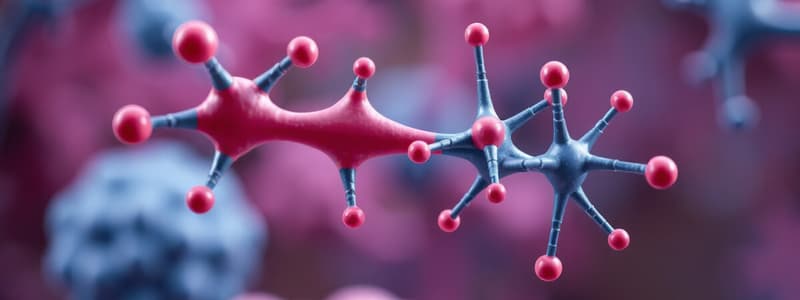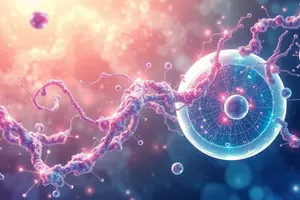Podcast
Questions and Answers
What is the primary characteristic of tachyphylaxis?
What is the primary characteristic of tachyphylaxis?
- Tolerance develops after multiple doses.
- Tolerance occurs rapidly after one or fewer doses. (correct)
- The drug becomes more effective over time.
- No change in drug effectiveness occurs.
Which type of adverse drug reaction is always dose-independent?
Which type of adverse drug reaction is always dose-independent?
- Type-A reactions
- Idiosyncratic reactions
- Toxic reactions
- Type-B reactions (correct)
What is a key way to prevent drug tolerance?
What is a key way to prevent drug tolerance?
- Increase the dosage continuously.
- Perform drug rotation frequently.
- Switch to a different drug class entirely.
- Stop drug administration for a short period. (correct)
In the case of severe hypotension after an overdose of antihypertensive drugs, this reaction is classified as which of the following?
In the case of severe hypotension after an overdose of antihypertensive drugs, this reaction is classified as which of the following?
What causes idiosyncratic reactions to drugs?
What causes idiosyncratic reactions to drugs?
What is the primary mechanism through which drugs can produce their effects?
What is the primary mechanism through which drugs can produce their effects?
Which type of antagonist competes with an agonist at the receptor site?
Which type of antagonist competes with an agonist at the receptor site?
How do physiological antagonists produce their effects?
How do physiological antagonists produce their effects?
What distinguishes an agonist from an antagonist?
What distinguishes an agonist from an antagonist?
What type of antagonism involves a drug affecting the absorption or metabolism of another drug?
What type of antagonism involves a drug affecting the absorption or metabolism of another drug?
Flashcards are hidden until you start studying
Study Notes
Mechanism of Drug Action
- Drugs exert their effects by interacting with specific receptors, inhibiting enzymes, or blocking ion channels.
- Receptor Mechanisms: These involve binding to specific sites on cells, leading to a change in the cell's function.
Agonists & Antagonists
- Some drugs act by binding to receptors that normally interact with endogenous substances like hormones, neurotransmitters, and autacoids.
- Agonists: Mimic the actions of the endogenous substance by binding to the receptor and producing an effect.
- Antagonists: Inhibit the action of the endogenous substance by blocking the receptor, preventing the substance from binding and initiating its action
Drug Antagonism
- Antagonism: A decrease in the effect of a drug when combined with another drug.
- Pharmacological Antagonism: Occurs when drugs compete for the same receptor or interfere with the receptor's signaling pathway.
- Pharmacokinetic Antagonism: Occurs when one drug alters the absorption, metabolism, or excretion of another drug.
- Physiological Antagonism: Occurs when two drugs have opposing effects on the body, but act via different receptors.
- Chemical Antagonism: Direct interaction between two drugs, neutralizing the effect of one drug.
- Physical Antagonism: Occurs when one drug physically adsorbs or binds to another drug, preventing it from reaching its target.
Drug Tolerance
- Tolerance: A decrease in the intensity of response to a drug after repeated administration.
- Tachyphylaxis: Rapid development of tolerance after one or a few doses.
- Prevention of Tolerance: Withdrawal of the drug for a short period can sometimes restore sensitivity to the drug.
Adverse Drug Reactions
- Adverse Drug Reactions (ADRs): Unwanted or harmful effects experienced after taking a drug.
- Type A Reactions: Predictable reactions that are often an extension of the drug's known pharmacological effects.
- Type B Reactions: Unpredictable reactions, often related to drug allergies or idiosyncrasies.
- Toxic Reactions: Dose-related reactions, often reversible, potentially causing pharmacological, pathological, or genotoxic effects.
- Allergic Reactions: Caused by previous sensitization of the immune system, leading to antibody formation.
- Idiosyncrasy: An abnormal reaction to a drug, either severe sensitivity to a small dose or insensitivity to high doses. Often due to genetic factors.
Studying That Suits You
Use AI to generate personalized quizzes and flashcards to suit your learning preferences.




